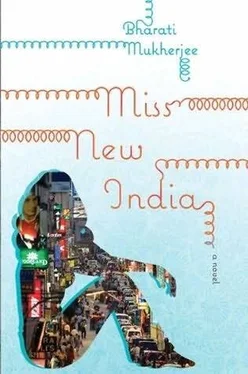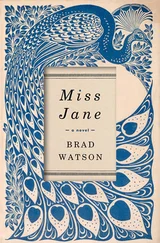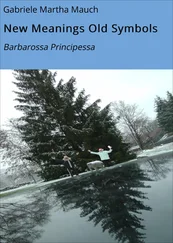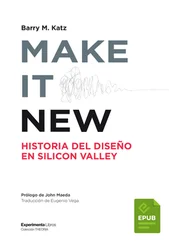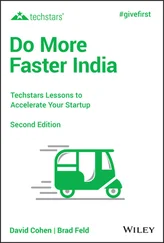Anjali felt the sting of Minnie's words: your country, your leaders. She could have crushed Minnie's water glass into Minnie's fist. She remembered the row of hanged Sikhs, the smiling white soldiers with their boots on the corpses, the old photos that had been carried out of Peter's temporary bedroom.
Peter rose, surprising Minnie in midsentence. He dipped his head in Minnie's direction, smiled, and thanked her for her hospitality, cutting off the rest of her speech on the deliberate mutilation of the glories of the Raj. He then launched into a dinner-table speech of his own. "That is a reading of history I think we recognize. It is very remote from my own experience, but not alien to generations of visitors and respected authorities.
"I've been thinking back to my first visit to Bangalore some thirty years ago, and to this very house. Bangalore was then a neat and tidy city. Its people were, as always, courteous and helpful. I would go to the hall of records and state my request in writing. Then I would be handed a heavy brass medallion inscribed, as I remember, with a number rubbed so smooth it was nearly invisible. Centuries of petitioners had held it. I would take a seat with other petitioners on a long bench. Patience. The patience of India, that's what struck me most. Hours would pass. Perhaps it is another aspect of the dignity that our dear Minnie spoke of. And that smooth brass medallion felt like an egg entrusted to me for hatching."
He turned to Asoke, who was serving the soup course, and asked him in Hindi, "Where are they now, I wonder? Do they simply vanish? I hope some museum is hoarding them. Perhaps our gracious hostess has stored one or two on the premises."
Asoke put his tray of soup plates on the sideboard and limped toward the pantry.
"In any event, after a few minutes, or a few hours, a gentleman would emerge from the inner sanctum, call my number, and usher me into his chamber. Tea would be ordered. And there, rolled up on his desk, would be the original specifications for any residence or official building that I wished to study. And, strange to report, those elderly officers took an interest in my research. They added suggestions. They were extraordinary public servants. They wrote poetry. They were passionate patriots.
"Of course, such access today is impossible. Original documents confer legal advantage, and modern Bangalore is all about lawyers fighting for advantage."
"Hear, hear!" Girish Gujral interjected.
Asoke returned from the pantry, bearing a brass medallion on a small silver platter, placed the platter on the sideboard, and resumed serving the soup course.
"Well, I'd expect nothing less," Peter said. "An echo of times when both Asoke and I had dark hair on our heads."
Where was Peter going with this nostalgic prelude? Anjali wondered anxiously.
Peter paused for a long sip of water, then, his eyes on Girish Gujral, he continued. "But I'm also a child from overseas, and it was in India that I found my soul. My first Indian home was a village in the hills of Uttar Pradesh. I had been given training in basic Hindi-Bollywood Hindi, I called it-but in my village they spoke a tribal language that had never been recorded. So I was supposed to start teaching public hygiene, but before I could teach anything I had to learn the language my students spoke. I count that as a blessing. If those villagers were to learn anything from me, I first of all had to learn from them. Those two years set me on a course. It set the stage for what I've been doing all my life.
"When I was a young man, I traveled all over India in search of something that was missing. I guess we called it purpose. It even brought me to Bangalore and to this house."
At Peter's mention of her house, Minnie perked up. Opal was preoccupied with gumming some vegetable slivers from her soup.
"I was able to take measurements and inventories and go through city documents. The book I wrote could not be written today. I would not be allowed official access. And for me, this is the most worrisome aspect of modern India-the disappearance of trust. I look at modern Bangalore, and at Delhi and Bombay, and I wonder, what are we creating? Not in our private sector, but in the public? Can we keep that old patience-dignity, as our hostess calls it-and the passion? Have we lost our sense of civic morality forever? The newfound prosperity in this city is breathtaking, and I don't mean to disparage it. Prosperity is a good thing. But I'm not so sure of the wealth that comes from outsourcing. I wish the prosperity was rooted to something. I wish it built something beyond glass monuments. It seems as flimsy as a kite or a balloon. What comes drifting in with the winds might just as easily drift away."
Husseina signaled Asoke with her eyes: it was time to bring in the next course.
"Fortunately, we have experts with us tonight. I've come back to Bangalore to learn, not to teach. I hope my suspicions and my doubts can be laid to rest. Usha I've known since her doctoral studies in Delhi. If anyone can persuade me that outsourcing is healthy, it is Usha Desai. I met Parvati for the first time this afternoon in the CCI office, but I know her nephew, and of course, the world is familiar with achievements of her brother-in-law, Bishwapriya Chatterjee."
Girish Gujral glanced at Anjali with new awe. So, it was that Bishwapriya Chatterjee, the legend. Anjali could almost hear the wheels turning: how is it possible for one innocent teenage girl from small-town Bihar to know the legend's family, and to know Peter Champion? She tried to keep a blank expression on her face.
Peter moved on to acknowledging his long acquaintance with this young lady from Gauripur, Anjali Bose, as her teacher, and his desire to get to know Girish, the force behind Vistronics.
From the pantry, Asoke sent in the teenage girl with the long hair combed by firelight to remove the soup plates and spoons. Her long black hair was tamed into a lustrous braid and decorated with fragrant gardenias. She had a saucy walk, which, Anjali jealously noted, also seemed to catch Mr. GG's attention.
"The defense of an entire industry has fallen on me." Usha sighed.
"Not at all, Usha," Peter protested.
"Peter, if training young Indians to sound convincingly like young Americans is all we do, or even a fraction of what we do, I'd agree that we'd be performing a disservice to our country. But it's not what we do."
The discussion continued through the fish course, for which Minnie had put out special fish knives. Anjali looked to Husseina for cues as to the appropriate cutlery for each course. She was dexterous with her fingers but clumsy with a fish knife. She had never sat at a dining table laid with formal china, silverware, and glassware. Nor had she ever heard serious arguments delivered with genteel humility. At home, she and her parents ate with their fingers and treated dinnertime as the nightly occasion for the venting of grievances. The same grievances, night after night.
She sensed that Peter was mildly rebuking Mad Minnie and challenging Usha. But hadn't he been the one who had lured Anjali to Bangalore, boosting it as the city of India's future and talking Usha up as the deliverer of liberty and prosperity to ambitious small-town women like her? She glanced at her fellow boarders for some kind of confirmation. But Tookie looked desperate to escape for a cigarette, Sunita seemed bored, and Husseina was distracted.
"I'm saying it could be ephemeral," said Peter. "We're tied to American prosperity. If America goes under, we'll drown."
But isn't that what Peter had been teaching her at Vasco da Gama and in his private classes? American corporate models? Starbucks? Regional U.S. accents? Get out of Gauripur before you stagnate? Maybe Usha Desai and Parvati Banerji caught certain important nuances, but she didn't. Under her glamorous outfit, she was still a sad, stupid bumpkin.
Читать дальше
